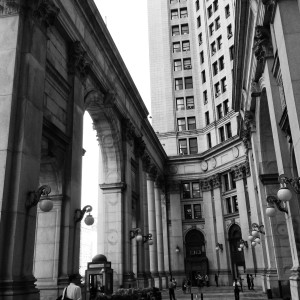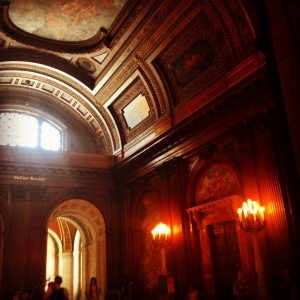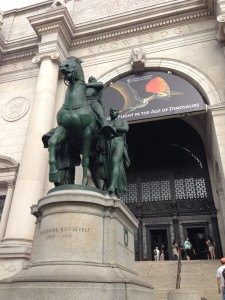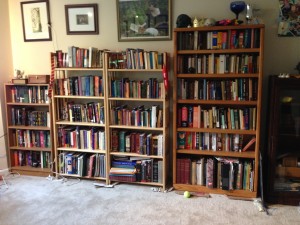One of the problems of archival research is scope.
So you have a project. The project is interesting. The project involves a lot of dates, figures, places, etc. You do a search of an archive’s holdings on these various keywords and come up with a handful of findings that look like they may be pertinent. On paper, looking at this handful is totally doable within your allotted time frame.
But then you arrive at the archive and find out that one line of innocuous catalogue entry is actually representative of a collection which spans boxes and boxes of items; some of them large, some of them small, some of them will require a simple glance and reference picture, some will require careful reading. The collection is catalogued in a finding aid which, in itself, is approximately book-length and has entries for each individual item but those entries consist of a perfunctory three-word description which might possibly relate to your research or it could be a wild goose chase down a rabbit hole of really interesting stuff.
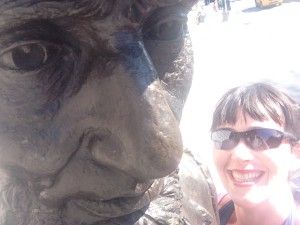
Me and honest Abe on the steps of NY Historical Society
That’s the real problem: all the things that you could ask the archivist to pull are, in their own right, really interesting. They might be old, they might be antique, they might be related to whatever it is that you’re doing in a way that is so tangential that it might not even matter in the long-run but, being a thorough researcher, you have to document these findings and at least do enough looking-into that you can claim due diligence. So the one line of catalogue entry suddenly consumes hours (if not days) of your archive time and, in the words of Indie, “X” never marks the spot. I can’t tell you how much time I’ve spent following leads just to say that I’ve mapped the terrain.
This week, I’ve devoted attention to looking at materials that are probably not related enough to my dissertation to matter, but hat I had to look into anyway to rule out their collections from the greater body of work which might matter. The research treasure hunt is always fruitful in that you are constantly handling interesting things. This week alone, I found myself pawing through a batch of Edwin Booth’s cancelled checks, and a folder full of locks of hair given to him by various groupies, fan-girls, and sweethearts throughout the years (like I said…. REALLY INTERESTING STUFF but how are these things related to performances of Hamlet and Julius Caesar in the nineteenth century?).
I’ve also been pointed in the direction of collections that will require a great deal of time to sift through by archivists whose job it is to help researchers like me find things they’re looking for. These archivists know their stuff and the things they pointed me at are probably extremely fruitful. But do I really have time to read the personal correspondence of several prominent families spanning the course of about a hundred years in hopes that they will turn up details of the five performances I’m looking at?
Oh, yes, there are ways to narrow the field. In the instance of personal correspondence, I certainly have some target date ranges that I could look at. But I definitely didn’t allot time to look at these things (at least during this research trip) so do I have that time to do it? And can any of these things be found digitally so that I don’t waste precious time in a reading room looking at things that I could be looking at when I get home?
This research adventure has so far been extremely fruitful. So fruitful, in fact, that I’m beginning to worry about having enough time to look at everything I want to see (despite the fact that I have four more weeks in which to do it). I have begun to strategically rule out things that perhaps don’t need my attention (do I really need to see another portrait of Edwin Booth or yet another copy of John Wilkes Booth’s Carte De Visite upon which they based the picture displayed upon his “Wanted” poster after he shot the president?). I have also begun to prioritize items which are pertinent to sections of my diss for which I have fewer options for primary documentation (just you try finding materials relating to African American Actors in 1820).
I’ve also tried to start pacing myself; it would be really easy to burn too hot too fast on this. Brain work is taxing and I find that I come home simply exhausted at the end of the day (never mind the entirely new and exciting running possibilities that Riverside and Central Parks have opened up to me and I’ve taken perhaps too much advantage of). I also find that I’m really excited for more; that I’m doing exactly the work I hoped to do; and that I fight back imposter syndrome with every day that I walk into that reading room like I know what I’m doing.
….even if I only kinda know what I’m doing and a lot of this is figure it out on the fly. Hey, we’ve all gotta start somewhere!
